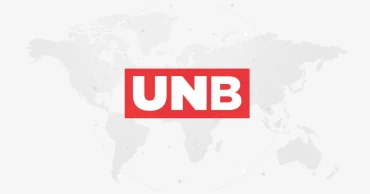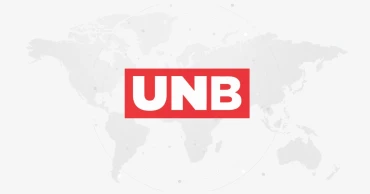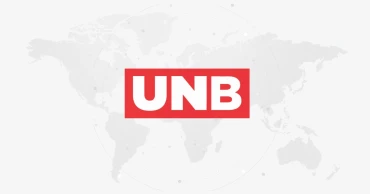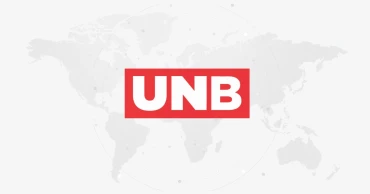G7 countries
G7 countries to provide $19.8 billion in aid to Ukraine
The Group of Seven leading economies agreed Friday to provide $19.8 billion in economic aid to Ukraine to ensure its finances do not hinder its ability to defend itself from Russia’s invasion.
German Finance Minister Christian Lindner told reporters that $9.5 billion of the total amount was mobilized at meetings of the G-7 finance ministers in Koenigswinter, Germany, this week.
“We agreed that Ukraine’s financial situation must have no influence on Ukraine’s ability to defend itself successfully,” he said. “We need to do our utmost to end this war.”
Russia’s invasion touched on almost every topic of the finance ministers’ meetings this week, from the need to reduce reliance on Russian energy to reforming relationships between countries to maintain economic stability.
“Russia’s war of aggression is causing global economic disruptions, impacting the security of global energy supply, food production and exports of food and agricultural commodities, as well as the functioning of global supply chains in general,” a G-7 statement says.
U.S. Treasury Secretary Janet Yellen and other leaders spoke this week about the need for allies to put together enough additional aid to help Ukraine “get through” the Russian invasion.
“All of us pledged to do what’s necessary to fill the gap,” Yellen said Thursday as the ministers finished their first of two days of talks. “We’re going to put together the resources that they need.”
The International Monetary Fund’s latest world economic outlook says Ukraine’s economy is projected to shrink by 35% this year and next.
Also Read: US promises new aid to Ukraine in fight against Russia
The finance ministers of the G-7 — which includes Canada, France, Germany, Italy, Japan, the United Kingdom and the U.S. — also have grappled with deepening inflation, food security concerns and other economic issues during their talks.
A communique marking the end of their meetings addressed commitments to addressing debt distress in low-income countries, trying to ease the fallout from the coronavirus pandemic and staving off inflation rates “that have reached levels not seen for decades.”
As the finance ministers were meeting in Germany, the U.S. overwhelmingly approved its own $40 billion infusion of military and economic aid for Ukraine and its allies. A portion of the U.S. funding was included in the G-7 package for Ukraine.
The United Kingdom committed $50 million toward Ukraine from the London-based European Bank of Reconstruction and Development, Treasury chief Rishi Sunak said.
“This comes on top of the $950m in loan guarantees that the UK has already committed to significantly scale up World Bank lending to the Government of Ukraine to help meet urgent fiscal need,” according to a news release from Sunak’s office.
This week was a rally for funds to Ukraine and those affected by the war.
Treasury and several global development banks announced Wednesday that they would spend tens of billions to work “swiftly to bring to bear their financing, policy engagement, technical assistance” to prevent starvation prompted by the war, rising food costs and climate damage to crops.
3 years ago
Covid: WHO warns pandemic will drag on into 2022
The Covid pandemic will "go on for a year longer than it needs to" because poorer countries are not getting the vaccines they need, the World Health Organization (WHO) says.
Dr Bruce Aylward, senior leader at the WHO, said it meant the Covid crisis could "easily drag on deep into 2022", reports BBC.
Less than 5% of Africa's population have been vaccinated, compared to 40% on most other continents.
The UK has delivered more than 10 million vaccines to countries in need.
Read:Mosquirix: WHO Recommends World's First Malaria Vaccine RTS,S
It has pledged a total of 100 million.
Dr Aylward appealed to wealthy countries to give up their places in the queue for vaccines in order that pharmaceutical companies can prioritise the lowest-income countries instead.
He said wealthy countries needed to "stocktake" where they were with their donation commitments made at summits such as the G7 meeting in St Ives this summer.
"I can tell you we're not on track" he said. "We really need to speed it up or you know what? This pandemic is going to go on for a year longer than it needs to."
The People's Vaccine - an alliance of charities - has released new figures suggesting just one in seven of the doses promised by pharmaceutical companies and wealthy countries are actually reaching their destinations in poorer countries.
The vast majority of Covid vaccines have been given in high-income or upper middle-income countries. Africa accounts for just 2.6% of doses administered globally.
Read:World misses most 2020 mental health targets: WHO
The group of charities, which includes Oxfam and UNAids, also criticised Canada and the UK for procuring vaccines for their own populations via Covax, the UN-backed global programme to distribute vaccines fairly.
Official figures show that earlier this year the UK received 539,370 Pfizer doses while Canada took just under a million AstraZeneca doses.
The original idea behind Covax was that all countries would be able to acquire vaccines from its pool, including wealthy ones. But most G7 countries decided to hold back once they started making their own one-to-one deals with pharmaceutical companies.
Oxfam's Global Health Adviser, Rohit Malpani, acknowledged that Canada and the UK were technically entitled to get vaccines via this route having paid into the Covax mechanism, but he said it was still "morally indefensible" given that they had both obtained millions of doses through their own bilateral agreements.
Read: WHO okays vaccination of those below 18 in Bangladesh: Health Minister
"They should not have been acquiring these doses from Covax," he said. "It's nothing better than double-dipping and means that poorer countries which are already at the back of the queue, will end up waiting longer."
The UK government pointed out it was one of the countries which had "kick-started" Covax last year with a donation of £548m.
The Canadian government was keen to stress that it had now ceased to use Covax vaccines.
The country's International Development Minister, Karina Gould, said: "As soon as it became clear that the supply we had secured through our bilateral deals would be sufficient for the Canadian population, we pivoted the doses which we had procured from Covax back to Covax, so they could be redistributed to developing countries."
Covax originally aimed to deliver two billion doses of vaccines by the end of this year, but so far it has shipped 371m doses.
4 years ago
Protect & evacuate all media personnel from Afghanistan, journo bodies urge G7
More than 50 civil society and journalists’ organisations, including ARTICLE 19, have urged the G7 countries to ensure the protection and subsequent evacuation of all media personnel from war-ravaged Afghanistan.
The group of leading industrial nations -- Canada, France, Germany, Italy, Japan, the UK, the USA and the European Union (EU) -- is preparing to hold an online summit on the deteriorating situation in Afghanistan.
Read: Evacuation flights resume in Kabul after deadly bombings
Ahead of this summit, the rights bodies operating at the international level, in a joint letter, have asked the G7 countries to make a clear and explicit commitment to taking journalists as an urgent priority, ensure their protection and evacuate them and their families from Afghanistan.
Faruq Faisel, the Regional Director for ARTICLE 19 South Asia, in a separate statement said, “ARTICLE 19 expresses solidarity with Afghan citizens, millions of whom are now living in abject fear."
ARTICLE 19 is committed to working with partners to support journalists and media workers, human rights defenders and women’s rights activists, academics, writers, artists and educators, all of whom are at serious and immediate risk of targeted violence at the hands of the Taliban.
“G7 members must increase their current support for those journalists and media workers at risk... and pay particular attention to the situation of women with immediate priority.
Read: What's happening with Afghanistan evacuations?
"G7 governments must ease visa restrictions for these people and their families seeking asylum as well as simplify and secure the process for visa application, and collaborate with third countries when possible," Faisel said.
ARTICLE 19 also urged the international community to ensure the continuation of the negotiations for a government based on the participation of all parties in Afghanistan and hold the Taliban accountable to its responsibilities to respect international human rights law.
4 years ago
UNICEF ED calls for donating excess doses of vaccine
UNICEF Executive Director Henrietta Fore has laid emphasis on sharing immediately available excess doses of vaccine and ultimately the global vaccination race will be won when Member States make sustainable plans to fully fund and supply the COVAX Advance Market Commitment.
"Sharing immediately available excess doses is a minimum, essential and emergency stop-gap measure, and it is needed right now," Fore said in a statement on Monday as G7 countries gear up for June summit.
She also talked about supporting the expansion of vaccine manufacturing capacity, including through proactive Intellectual Property licensing and technological transfer.
Fore said COVAX Facility – the global COVID vaccine equity scheme – will deliver its 65 millionth dose in the coming days but it should have been at least its 170 millionth.
Read: Shortage of vaccines a 'temporary' problem, follow health guidelines: President
"By the time G7 leaders gather in the UK next month, and as a deadly second wave of COVID-19 will likely continue to sweep across India and many of its South Asian neighbours, the shortfall will near 190 million doses," she said.
"We are concerned that the deadly spike in India is a precursor to what will happen if those warnings remain unheeded. While the situation in India is tragic, it is not unique. Cases are exploding and health systems are struggling in countries near – like Nepal, Sri Lanka and Maldives – and far, like Argentina and Brazil," Fore said.
The cost for children and families will be incalculable.
“The longer the virus continues to spread unchecked, the higher the risk of more deadly or contagious variants emerging," Fore said.
The clearest pathway out of this pandemic is a global, equitable distribution of vaccines, diagnostics and therapeutics.
"COVAX, led by the WHO, Gavi and CEPI, with UNICEF as implementing partner, represents such a pathway. But COVAX is undersupplied," Fore said.
Among the global consequences of the situation in India, a global hub for vaccine production, is a severe reduction in vaccines available to COVAX, said the UNICEF ED.
Read: India to begin Covaxin vaccine trials for children
"Soaring domestic demand has meant that 140 million doses intended for distribution to low- and middle-income countries through the end of May cannot be accessed by COVAX. Another 50 million doses are likely to be missed in June," she said.
This, added to vaccine nationalism, limited production capacity and lack of funding, is why the roll-out of COVID vaccines is so behind schedule.
“G7 leaders will be meeting next month with a potential emergency stop-gap measure readily available," Fore said.
New data analysis provided by Airfinity, the life sciences research facility, and commissioned by the UK National Committee for UNICEF, indicates that G7 nations and ‘Team Europe’ group of European Union Member States could donate around 153 million vaccine doses if they shared just 20 per cent of their available supply over June, July and August, she said.
Critically, they could do so while still meeting their commitments to vaccinate their own populations.
“While some G7 members have greater supply than others, and some have further advanced domestic rollouts, an immediate collective commitment to pool excess supply and share the burden of responsibility could buttress vulnerable countries against becoming the next global hotspot," Fore said.
Shortfall numbers are based on delays related to shipments from the Serum Institute of India (SII) only.
Read: Bangladesh thanks China; seeks larger amount of vaccine doses
Other delays related to the original COVAX delivery schedule are expected to be made up by the end of June. There is currently no timetable to resolve SII-related delays.
The Airfinity analysis is produced using data forecasts of vaccine supplies allocated to G7 members based on doses set to be readily available.
The supply forecasts are based on existing deals between countries and manufacturers of approved vaccine candidates unless specified as included vaccine candidates currently undergoing Phase III trials.
The aggregate figure of 153 million doses represents the total of available doses if all G7 members donate 20 per cent of their available supply in June, July and August 2021, minus Novovax (due to anticipated supply limitations affecting Novovax).
4 years ago
No room for complacency, despite drop in Covid cases: WHO
Confirming a drop in the number of Covid-19 cases globally for the fifth consecutive week, the head of the World Health Organization (WHO) has cautioned against complacency saying "the fire is not out" yet.
5 years ago








